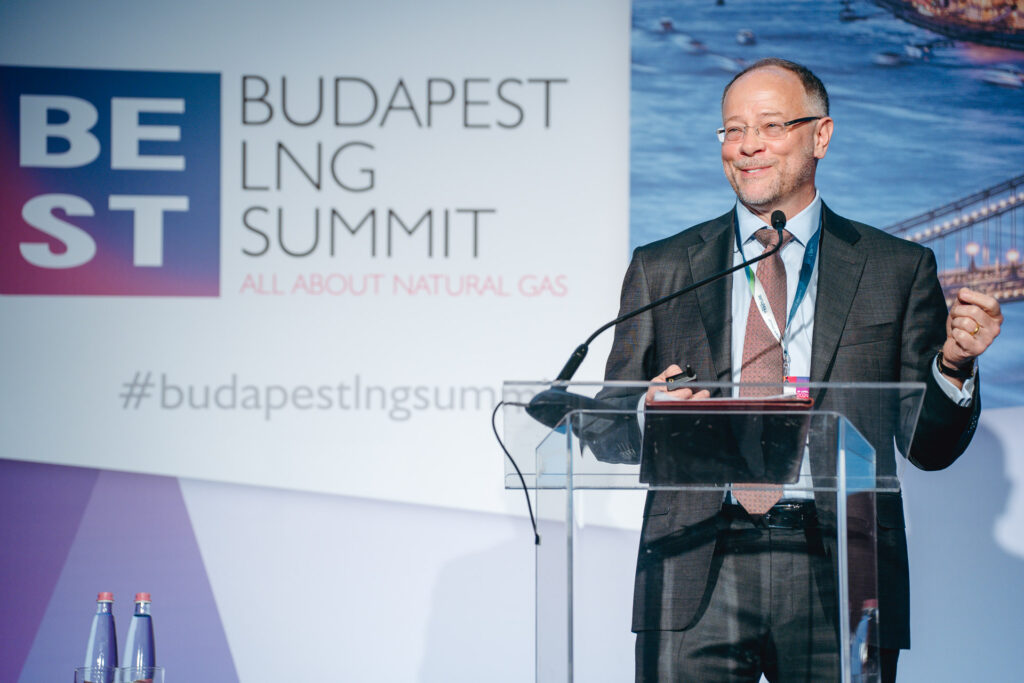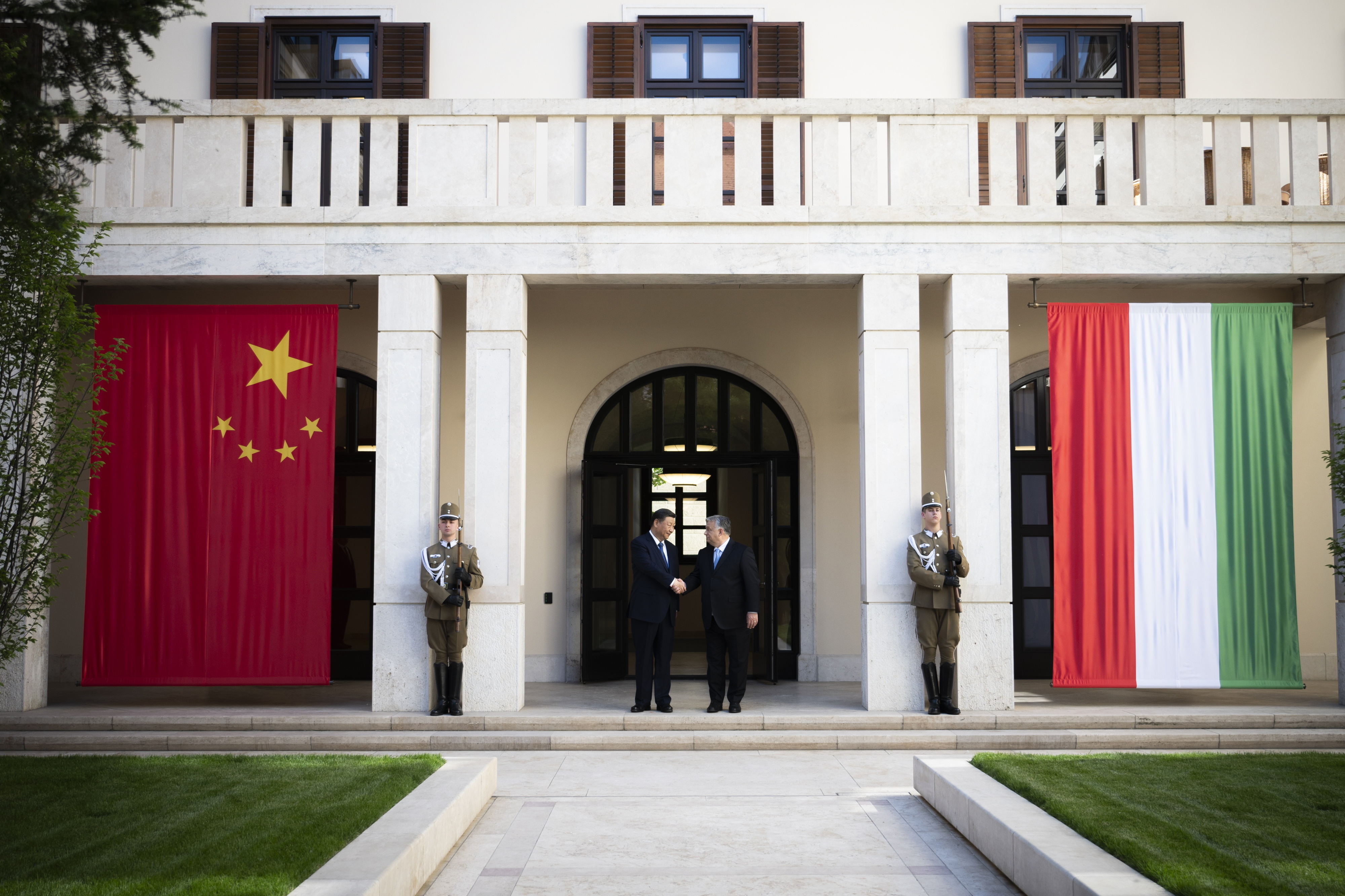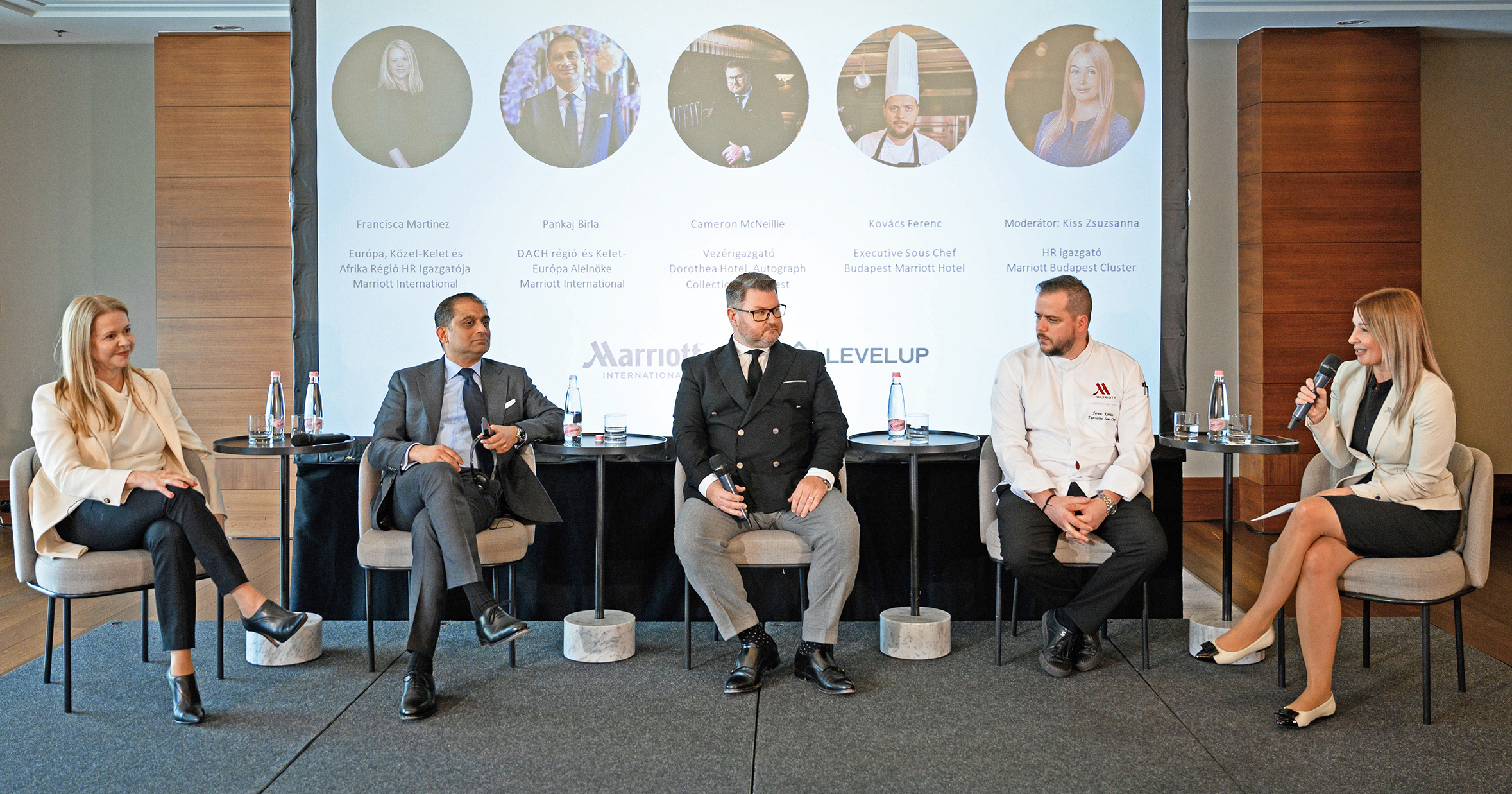Global Gas Leaders Converge on Hungary for 5th LNG Summit

Jefferson Edwards, vice president of Shell Energy Integration & Fundamentals.
The fifth edition of the Budapest LNG Summit, orchestrated by White Paper Consulting, heralded an assembly of 30 speakers, industry vanguards, and policymakers from more than 20 countries, uniting to chart the course of the liquified natural gas sector and the trajectory of critical regional projects.
Opening the conference, Hungary’s Minister of Foreign Affairs and Trade Péter Szijjártó articulated the need, as he saw it, to address energy supply as a matter grounded in physical reality, as opposed to ideological discourse. For Hungary, the essence of diversification is not the abandonment of existing energy sources but the pursuit of supplementary ones.
“We will continue to reject any pressure of a political nature, as we have done in the past,” said Szijjártó, referring to, if not explicitly naming, land-locked Hungary’s long-standing reliance on Russian natural gas.
The minister spotlighted the strategic importance of infrastructural development, citing success stories such as the construction of the Turkish Stream pipeline, the Slovakia-Hungary Interconnector, and the commercial LNG agreement with Shell, which Hungary is keen to extend beyond 2027.
Offering a global perspective, Gergely Molnár, an analyst at the International Energy Agency (IEA), forecasts a rebound in gas demand by 2024, with a worldwide gas consumption increase of 2.5%, predominantly driven by Asia.
That may prove relatively short-lived, however. “We expect gas demand to decelerate in the medium-term,” Molnár projected.
Jefferson Edwards, vice president of Shell Energy Integration & Fundamentals, unveiled his company’s LNG Outlook for 2024, an annual benchmark forecast dissecting the trends of the global LNG market.
“Gas and LNG play a crucial role in both energy security and the energy transition. The global demand for LNG is estimated to surge by more than 50% by 2040, fueled by the industrial coal-to-gas switch in China and South Asia, and as Southeast Asian nations lean more on LNG to bolster their economic growth,” he said.
“Furthermore, LNG continues to be pivotal in ensuring the security of supply to Europe through diversification,” Edwards underscored.
Diversification is Key
Gergely Szabó, regional chairman of MET Central Europe, emphasized the energy industry’s need to revolutionize its product offerings and risk pricing strategies to brace for the next energy crisis, with diversification being key. “Any means of diversification is welcome,” he declared.
The summit also spotlighted the role of LNG in bolstering energy security, supply flexibility, and competitiveness.
“To tap into LNG from the U.S. and globally, long-term contracts are essential, offering certainty,” stated Franck Neel, a member of OMV Petrom’s executive board. He highlighted Romania’s milestone as a net gas exporter for the first time in 2023.
Discussing supply diversification and OMV Petrom’s ventures in the Black Sea, Neel expressed confidence in the region’s potential, pointing to the company’s projects in Bulgaria while acknowledging the hurdles of volume and financing in the LNG market.
The ensuing panel discussion focused on LNG traders and their requisites, emphasizing the importance of flexible planning. Zoltán Rahóty, director of structured gas trading and LNG at MVM CEEnergy, observed that “cargos are being redirected to Asia, which may render Europe volatile.”
Asked about MVM CEEnergy’s long-term strategies, Rahóty revealed plans to start discussions with OMV Petrom regarding stakes in the Neptun Deep gas production project.
Eszter Szekeres, executive director of wholesale and portfolio optimization at MET Central Europe, pointed out the significant influence of global events on European gas prices, with approximately 20% of Europe’s gas supply transitioning from pipeline to LNG in recent years.
“Hence, even though price levels have receded to nearly pre-crisis figures, volatility persists,” she remarked.
Regarding diversification, Vitaliy Baylarbayov, deputy vice president of Socar, the State Oil Company of the Azerbaijan Republic, encouraged nations to consider Azerbaijan as a new partner in energy cooperation.
“What we value most is stability in relationships,” he stressed, advocating for the strategic use of oil and gas as a conduit in international relations rather than as a lever of power.
Reflecting on the temporary halt in U.S. LNG exports and its implications for Europe, László Fritsch, CEO of MVM CEEnergy, admitted, “It was quite unexpected because it did not trigger a significant shock to the market. However, should this pause persist, it could profoundly impact global markets.”
Transitional Fuel
Regarding the future of gas, he signified that the market indicators are clear and gas will continue to serve as a transitional fuel in Europe for the next two decades.
Leaders from gas transmission system operators across Central and Eastern Europe provided an update on integrating the regional gas market and the flagship project of the Vertical Corridor.
“The Vertical Corridor is an exemplary initiative, rooted in the effective collaboration of TSOs and LNG infrastructure operators,” said Szabolcs I. Ferencz, CEO of FGSZ Hungarian Gas TSO.
“With minor modifications to the existing pipeline system, new alternative gas and LNG supplies could be unlocked, benefitting not just the Balkans, Ukraine, and the broader CEE region, but also enhancing market liquidity, integration, and competition,” he said.
“It stands as a tangible solution to existing bottlenecks and exemplifies the realization of an efficient bidirectional transmission infrastructure capable of channeling additional supplies from the south,” Ferencz added.
Panelists echoed those sentiments regarding the project’s significance for regional energy security and development. They shared insights from their respective countries and outlined strategic investments within the Vertical Corridor initiative, such as the inauguration of the Alexandroupolis FSRU operations to bolster necessary capacity and Bulgaria’s investment in its transmission system.
György Berze, CEO of Hexum Földgáz, provided his perspective on the future of gas storage in Hungary, stressing the pivotal decision points for gas infrastructure operators in adapting their technologies to meet the shifting energy landscape.
The conference also featured insights from Ukraine’s Deputy Energy Minister Mykola Kolisnyk, who highlighted the critical role of natural gas in Ukraine’s energy strategy over the next 10 to 15 years. He emphasized the nation’s ambition to enhance its infrastructure and develop additional entry and exit points to support this vision.
Moreover, the impending European methane regulation was a key topic of discussion at the Budapest LNG Summit. The dialogue included sharing best practices for methane measurement among companies and addressing the urgent need to mitigate emissions from imports, underscoring the areas requiring heightened focus moving forward.
This article was first published in the Budapest Business Journal print issue of April 19, 2024.
SUPPORT THE BUDAPEST BUSINESS JOURNAL
Producing journalism that is worthy of the name is a costly business. For 27 years, the publishers, editors and reporters of the Budapest Business Journal have striven to bring you business news that works, information that you can trust, that is factual, accurate and presented without fear or favor.
Newspaper organizations across the globe have struggled to find a business model that allows them to continue to excel, without compromising their ability to perform. Most recently, some have experimented with the idea of involving their most important stakeholders, their readers.
We would like to offer that same opportunity to our readers. We would like to invite you to help us deliver the quality business journalism you require. Hit our Support the BBJ button and you can choose the how much and how often you send us your contributions.











